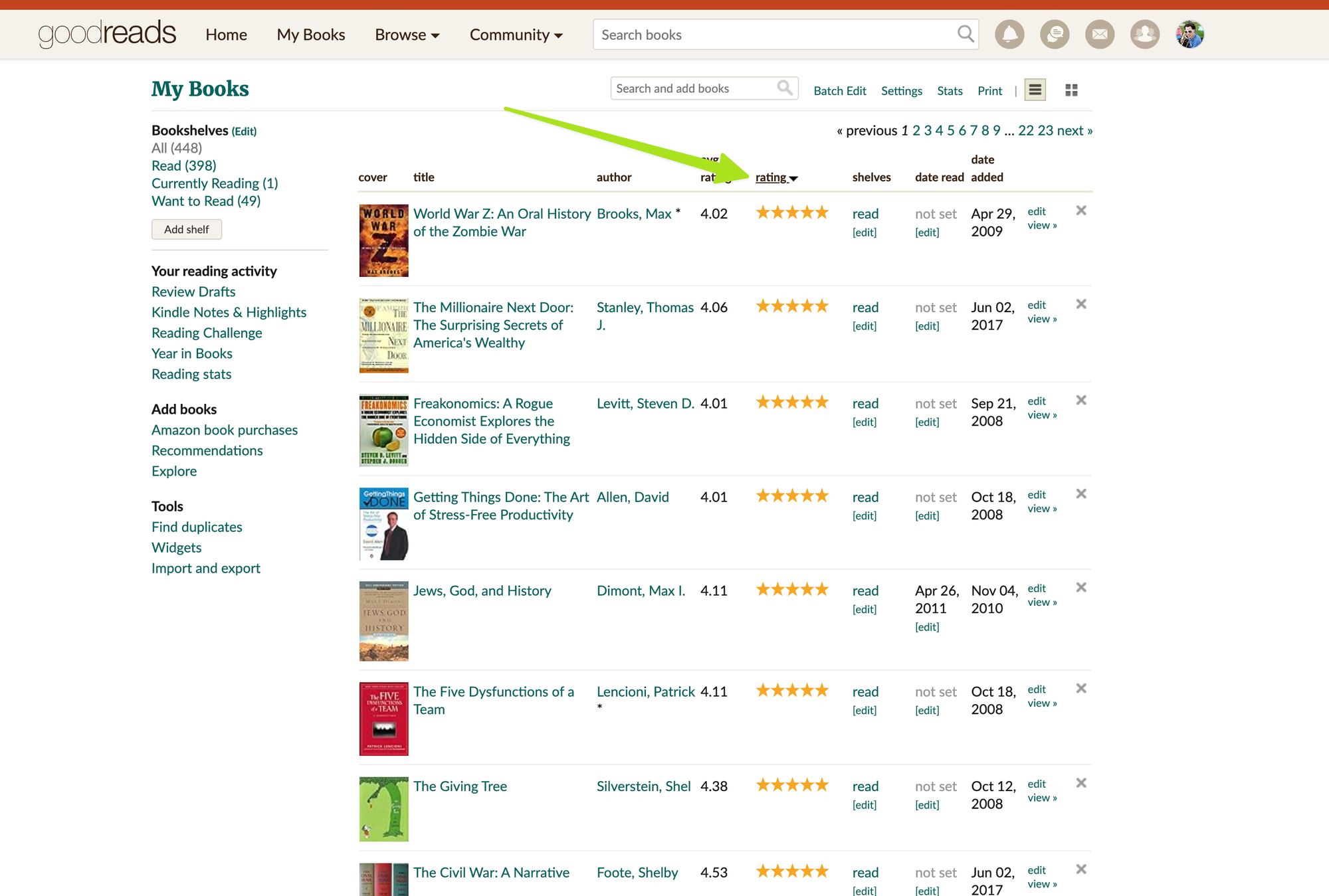Sheets not Goodreads

I previously shared that I've started tracking my reading in Google Sheets. You could use Goodreads to track your reading. You'd be in the company of many of millions of users all of whom can't be wrong. Or can they?
Tracking one's reading creates a sort of thought journal. When you keep all of your tracking in one place you can make recommendations not just from memory, but from all of your tracked reading. You can also get recommendations from your tracking system. Some platforms have built in recommendations. LLMs do well with this kind of data in my experience. Friends do even better.
The Goodreads user experience leaves a lot to be desired. As far as I can tell, there is no easy way for me to see my top rated history books or my most read author. I can see my books sorted by rating and I'm sure there is some power user method involving shelves, but I don't have any interest in digging into.

Goodreads is an Amazon company, and while I make no pretenses, all else being equal I'll take an the Amazon alternative.
The Storygraph is one such alternative. The creator is incredible. The designer is amazing. The stats you get out of the box are more interesting, yet still constrained by what The Storygraph team (3 people?) can imagine and rollout.
At the end of the day, The Storygraph and Goodreads are both platforms that own the data you submit. They could choose to serve it back to you in a new less useful way or stop serving it altogether at any time.
Think about the enshitification of other social media over the past few years. Want to see how your enemy from elementary school is doing? You're going to need to see an ad first.
Google is no panacea and cancels products all the time. But Sheets is basically an everything app. Even if it does get cancelled, we can export all our data to CSV.
With my reading tracker I can quickly add books. Apps Script means all sorts of automations and integrations are possible. I wrote a script to lookup ISBN, author, and publication dates from the Google Books api, which makes data entry easier.
I can quickly find books. Cmd + F in a Google sheet is instantaneous even when the sheet has hundreds of thousands of rows. I can filter my list on any datapoint I collect in a normalized format - from date read, to publication date, to rating, to genre. This makes it possible to find tracked books meeting all sorts of criteria.
Reading is the most important point here - we should all be doing more. Tracking comes next. If you are reading more, you should be recording your reading. Over time this record becomes a diary that documents the development of your thoughts. If you are tracking your reading, we're basically on the same team. I just prefer Sheets.
Member discussion